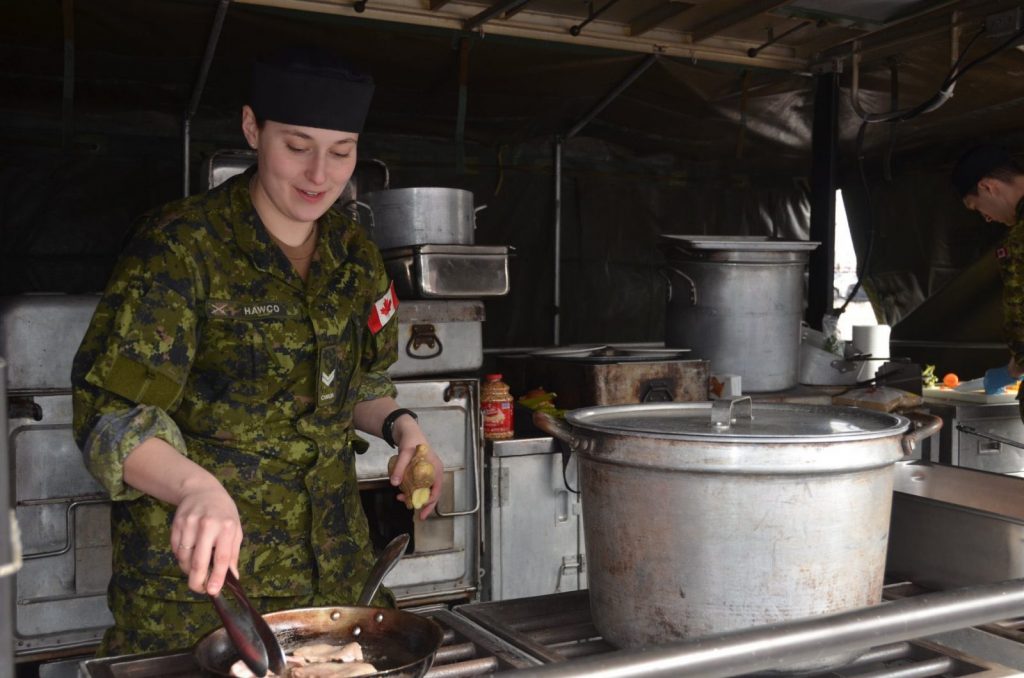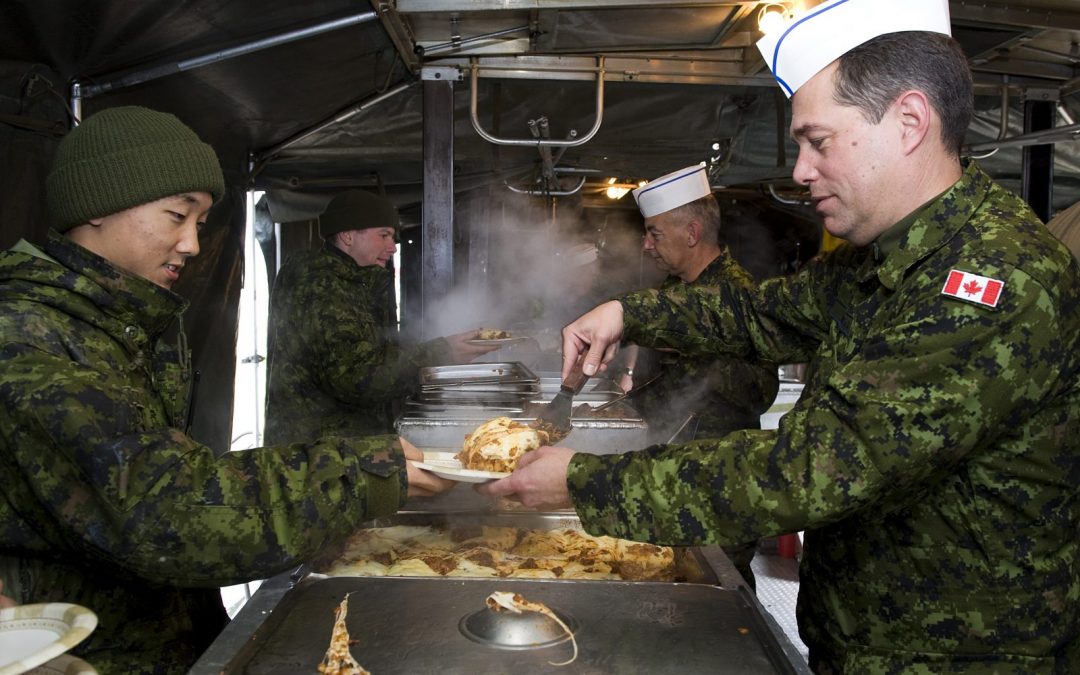by Major Noel MacKey
The old Napoleonic adage that “an army travels on its stomach” is perhaps the most basic military principle that militaries have succeed and failed to satisfy throughout the history of armed conflict. The importance of field fresh rations is paramount to successful operations – indeed, it’s a force multiplier.
Unlike many of Canada’s allies who for reasons of efficiency and ease have pivoted to serving preserved “boiled meals in a bag,” the Canadian Army continues to hold fast the need to provide fresh cooked meals. The quintessential platform that enables fresh ration feeding for the Army is the mobile kitchen trailer (MKT).
The MKT has been the backbone of serving fresh and hot food to tired and hungry soldiers for the last 30 years. The MKT is designed to feed groups of up to 150 personnel and it offers the most flexible capability as it can be positioned, stabilized and sheltered to deploy on almost any ground and during demanding weather conditions. It has been deployed around the world from the coldest Canadian winters to the hottest deserts of Afghanistan.
The current MKT fleet is showing significant wear as aged mechanical systems deteriorate and parts obsolescence continues. The net effect of this reduction in field feeding capability is a greater reliance on feeding platforms that are non-tactical, less capable, or oversized for Company and below feeding operations. The planned procurement of a replacement fleet is not forecasted until the 2030 timeframe.

Cpl Ivy Hawco of 37 Service Battalion in a mobile kitchen during Exercise Saffron 2018 in Halifax. Photo: Capt Felix Odartey-Wellington
To alleviate this capability deficiency, Director Land Requirements and Director Support Vehicles Program Management have commenced the MKT Re-Life project with Corrections Canada (CORCAN). CORCAN will be refurbishing existing MKTs by conducting structural repairs on platforms as well as replacing the brakes, electrical lighting, propane supply, and installing new burner systems.
Through this initiative, CORCAN will be employing offenders and training them in trade skills such as material fabrication, welding, gas fitting and electrical/mechanical repair. These offenders will receive transferable trade skills that can help them contribute to society once their sentences are finished.
Collaborating with CORCAN has afforded the project team a high level of flexibility in negotiating the statement of refurbishment work and enabled the production line to adapt to a wide range of trailer defaults as the serviceability of some MKTs are worse than others.
The MKT re-life project is set to run until 2023 while it refurbishes three per month. It is scoped to deliver between 80 and 100 MKTs back to the Army. Production intake and output will ensure that when a unit is ready to send a mobile kitchen, a refurbished trailer will be ready for issuance to that unit.




Hi,
I am looking to build a mobile kitchen for a vet in my Legion Branch
He served as a cook in Monte Pica QC. and I thought it nice to make a diorama for others at the Branch to get a perspective of what he did while serving.
I am Team Leader for the Op VetBuild chapter and have already completed 4 kits representing what our vets used, drove or serviced while serving in the CAF.
Have you say photos I could use to construct such a structure. Anything would be greatly appreciated.